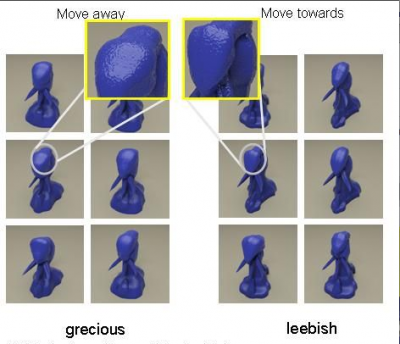One of the most bizarre demonstrations of the like-o-meter in action comes from the work of Brett Pelham, who has discovered that one’s like-o-meter is triggered by one’s own name. Whenever you see or hear a word that resembles your name, a little flash of pleasure biases you toward thinking the thing is good. So when a man named Dennis is considering a career, he ponders the possibilities: “Lawyer, doctor, banker, dentist… dentist… something about dentist just feels right.” And, in fact, people named Dennis or Denise are slightly more likely than people with other names to become dentists. Men named Lawrence and women named Laurie are more likely to become lawyers. Louis and Louise are more likely to move to Louisiana or St. Louis, and George and Georgina are more likely to move to Georgia. The own-name preference even shows up in marriage records: People are slightly more likely to marry people whose names sound like their own, even if the similarity is just sharing a first initial. When Pelham presented his findings to my academic department, I was shocked to realize that most of the married people in the room illustrated his claim: Jerry and Judy, Brian and Bethany, and the winners were me, Jon, and my wife, Jayne.
The unsettling implications of Pelham’s work is that the three biggest decisions most of us make– what to do with our lives, where to live, and whom to marry– can all be influenced (even if only slightly) by something as trivial as the sound of a name.
—Jonathan Haidt in The Happiness Hypothesis: Finding Modern Truth in Ancient Wisdom (2006)


